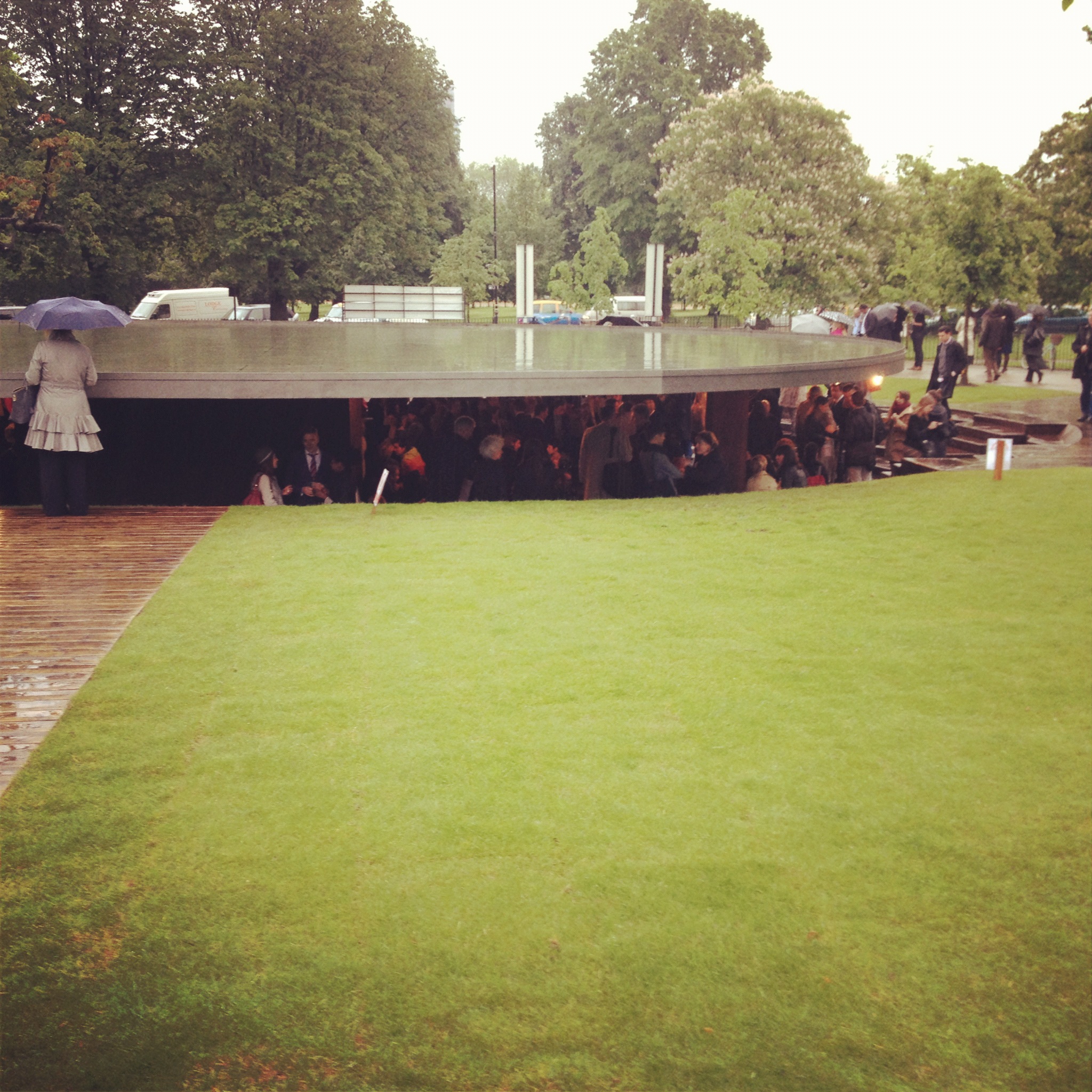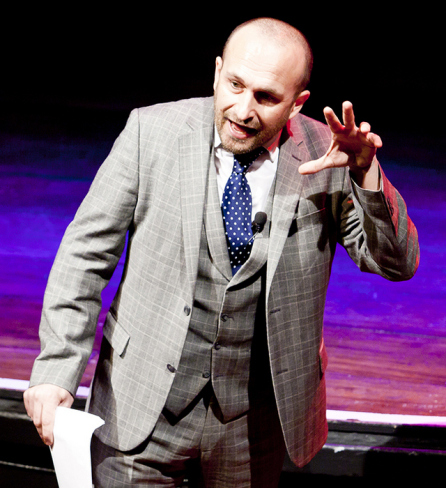Edinburgh Review. The first ToMax outside London.
"Inspiring Futures" - the ToMax Talks in Edinburgh
How Blaise and Sophie, our Edinburgh representatives, managed to produce such accomplished speakers for our inaugural meeting north of the border remains a source of wonder. The room was laid out carefully, with snacks sprinkled here and there, while our hostesses presided gracefully over the evening. They somehow nurtured the atmosphere of a 19th Century salon, albeit one concerned with real and ugly problems. As is the ideal, the speakers spoke from first-hand experience.
Lucy Moorehead works for Jamie's Farm, a charity which introduces groups of wayward youngsters to 'farming, family and therapy'. Prior to this, Lucy worked as a teacher in some tough London schools. Thus her speech was convincing, balanced and, most notably, caring. 'I have learnt the power of therapy' she said. 'As teachers, we were always taught to treat children's difficulties by taking them aside and deciding together what steps to take. On the farm, I have seen how well therapy works - just being there and listening. Often, there is no one else in their life who will do that.'
Concerning the London riots, Lucy commented that 'you have to draw a line and say "no" somewhere'. However, she felt that the strict sentences subsequently meted out to offenders are only likely to stir up more discontent, while short prison sentences may well produce sharper criminals. To Lucy and her co-workers at the farm, there was nothing at all surprising about the riots. 'Was it a coincidence' she asked, 'that this happened after big cuts to youth programs?'
While emphasising how much schools are currently doing to help tricky children and combat anti-social behaviour she maintained that they can only do so much. It is up to the 'third arm' of charities to provide the essential support required outside school and home, the funding of which should not have been cut.
Lucy also criticised the recent axing of classes in which teachers led discussions about non-academic issues and 'life skills' such as manners and respect. 'There is nothing wrong with teaching these things explicitly' she said 'It works.' But early intervention is key. 'Any primary school teacher can identify the problem children at an early age' she said. 'Most of the time, it's clear as day.' So why not help them early. 'For every pound spent on a six-year-old child, many, many more are needed later on.'
Karyn McCluskey, whose time as the head of Strathclyde Police has seen a 50% reduction in gang-related violence in and around Glasgow, echoed Lucy's point. 'Where's the money going?' she asked. 'I hate to say it guys, but it's going to you - to universities.' Throughout, she and Aamer Anwar spoke with the audience in mind: they addressed the room as privileged and able to initiate change.The obligations which go with privilege are rarely invoked at a university talk.
When Karyn transferred to Strathclyde, she was shocked by the prolific violence. A typical offence is the 'Glasgow smile' (a Scottish cousin of the 'Chelsea smile') where the cheeks are slit with a knife and the 'smile' extended up to the ears. 'These kids are doing this at night, when they can't see the damage they're doing. You're given a Glasgow smile, your life as you know it is over. It's a whole lot harder to get that job you wanted...you can forget marrying that girl you had your eye on.'
There was an American feel to Karyn's strident delivery. I felt like a policeman listening to a pre-raid brief. Indeed, Karyn borrowed the approach used in Boston to create a Violence Reduction Unit in Glasgow. 'You've got to treat violence as a disease' she said, 'find the cause and treat that.' Accordingly, the strategy of her Unit was aimed at the root cause: the criminals' lack of empathy and understanding of what they were perpetrating.
The police surreptitiously gathered photographs of all aspects of gang life, including pictures of victims in the cold light of day. Next, they brought in a throng of those involved and showed them. The police then pledged to help anyone who rang a special number. 'I thought that either we'd get no one, or we'd get loads. We got loads.' The exercise was repeated in notorious schools. Again, evidence was shown. However, the effect was far greater when a victim's mother came in and spoke about the tragedy, whereupon even the most macho teenagers were reduced to tears. Karyn always likes to address root causes. After the talks, she told me that she often shows CCTV footage of a knifing before taking her audience back through the killer's life.
'In Scotland, we badly need more male role-models' she concluded. Certainly, more role models like Karyn could hardly be a bad thing, be they male or female.
Aamer Anwar was our last speaker and boy am I glad I will never have to oppose him in court. He is a formidable, persuasive and impressive lawyer and his claims were big and serious. Aamer began with the London riots, using them as a launch pad to discuss what he sees as the structural injustices running through British society. What's wrong? We have a culture of greed and no social mobility; everyone is out for themselves and the professional world encourages it. So, those rioters may not have been able to articulate their motives but their anger, if not their resultant actions, was justified. Justified by this climate of selfishness, and justified by the police's behaviour in Tottenham. Aamer saw the riots as a reaction to the police shooting of Mark Duggan in the first place followed by their silence when confronted at Tottenham Police Station by 1000 protesters demanding an explanation.No one emerged to make any kind of statement and the confrontation had scant media coverage. That was not an isolated incident, but a symptomatic one: institutional racism was among the causes of the riots, as it has been for other riots in living memory.
Footage of blazing houses allowed the media to blow the riots out of proportion in terms of their scale (compared, say, to other riots such as the 1981 Toxteth riots in Liverpool) and in terms of their heinousness. 'Of course, taking a TV is wrong. But when you live in a country where consumerism and injustice are rubbed in your face every day, where the gap between rich and poor is among the widest in Europe, I think that going out and expressing that anger is far less of a crime than what is happening on a daily basis in the City of London'.
Aamer described how his career as a racial campaigner began. His parents, first generation immigrants with conservative values, could live with, say, pub signs saying 'No Blacks, No Irish and No Dogs'. At Glasgow University Aamer blithely indulged in traditional student joys before gradually becoming involved in campaigning for racial equality. One day, he was putting up posters when the police grabbed him, took him to the station and beat him up, knocking out his front teeth to the accompaniment of racist remarks. This was the catalyst.
In Britain, Aamer suggested, the Muslim community is irrationally feared and put-upon. He criticised the racial criteria for stop-and-search and linked this to the paranoid attitude to terrorism which led to the (in his view) risible conviction of 'the scapegoat' Mohammed Siddique, a twenty-year-old charged with promoting terrorism from his laptop. Aamer represented Siddique in his appeal and last year overturned one of his convictions. Principally, such tensions are being fuelled by British foreign policy. "Public protests, against the war in Iraq for instance, may not influence policy, but they make a difference' he said. 'It means that the Muslim community feel supported, not just by their own, but by the Brits at large.' You might wonder how this is related to disadvantaged young people's futures: the answer is that racial minority groups are over-represented among the disadvantaged.
Returning to the direct issue of alienated youth, Anwar called the increase of tuition fees to £9000 'a big 'no entry' sign, saying: "if you're poor, you're disadvantaged, you're not getting in. And the people getting in are just going to replicate the same ideas. […] University will be an extremely sad place if the vast majority are white middle class students."
Comment. It is hard to hear such things, from all three speakers, without having some reaction one way or the other. I think Aamer Anwar made a good point when he said that the UK has a climate of individualism where obligation is forgotten. Lucy Moorehead talked about being involved in your community to the extent that you might chide a child behaving badly on the bus because you know them. Well, that is a rare sight. Is the system fundamentally rotten, are many jobs inherently bad? I don't know. I don't know enough about banking or about the workings of capitalism. Is multi-culturalism failing in Britain? I don't know either. I don't see explicit racism or Islamophobia in my day-to-day London life, but maybe that is the very issue - different communities live in isolation. As Karyn McCluskey put it, 'absence of evidence is not evidence of absence'. I'm not informed enough, but after the talks I think that I should be.
On the other hand, if we are to have a more integrated society and return to earth, as endorsed by Karyn and Lucy, is accessible university part of the solution? Why don't we invest that money lower down as they suggest? It may seem anti-aspirational, but it seems to me that making university closer to it's real cost and encouraging people into other trades is a way to re-calibrate our values - to address the misconception that people without a degree are somehow less adequate or have skills which are less valuable to society - that practical trades which don't require a degree are somehow less worthy. This approach might stop the paperwork tyranny where employers only hire people with the right certificates and encourage apprenticeships etc. Instinctively, it sounds like more jobs for the disadvantaged. If people thought this way, then we might get our feet back on the ground and even restore the healthy culture of making. But that's another talk.




 Email Article
Email Article